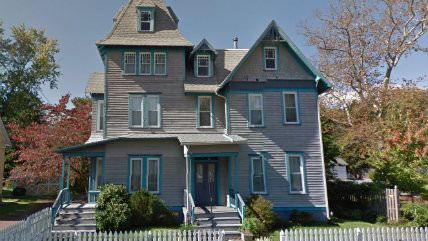New Jersey Enacts Ponderous, Self-Negating Eminent Domain "Reform"

Earlier this month, New Jersey became the 45th state to reform its eminent domain laws in the wake of the U.S. Supreme Court's decision in Kelo v. New London. Unfortunately, the new law provides property owners with little additional protection from condemnation.
The law purports to do two things: first, codify a 2007 New Jersey Supreme Court ruling favorable to property owners and, second, decouple eminent domain from redevelopment subsidies. It fails miserably at both.
When local officials declare that an area is blighted and "in need of redevelopment," the designation both allows them to offer economic development incentives and authorizes the use of eminent domain. But sometimes officials honestly don't want to seize anyone's property; they just want the ability to offer subsidies to developers.
But officials cannot credibly promise not to condemn property once it has been declared blighted. Officials can change their minds. And the next city council isn't bound by past promises. Every redevelopment area is thus under constant threat of eminent domain—intended or not.
Decoupling the incentives from condemnation would remove the threat. And the law appears to do just that, allowing for the creation of "non-condemnation redevelopment areas." But the law lets officials transform a non-condemnation area into a condemnation area if property owners refuse to sell.
WTF, New Jersey.
The law also muddies the issue of blight.
In Gallenthin v. Paulsboro, the New Jersey Supreme Court held that before cities can seize property for private development, officials must show "substantial evidence" the property is blighted.
Prior to Gallenthin, municipal officials could claim a variety of vague, subjective conditions like "faulty arrangement or design," "excessive land coverage," or "obsolete layouts" could justify a blight designation. In Gallenthin, officials argued the mere fact that they could imagine a better use for the property in question, an undeveloped field, meant it was "underutilized" and that they could seize it.
The high court ruled, however, that it would be unconstitutional to seize property without clear, quantitative evidence of a property's malign influence on surrounding areas.
The new law, instead of codifying the court's "substantial evidence" standard, restates the old, vague conditions for blight. Since the Supreme Court's ruling trumps the statute, the section of the law dealing with blight is probably moot on arrival. But property owners will likely be forced into litigation when local officials decide to make sure.
Some clarification is clearly necessary. Officials in Harrison Township recently tried to declare the house pictured above—and others in a similar state of decrepitude—blighted. (They backed off after outraged owners and their neighbors protested.)
In another sneaky bit of nastiness, the new statute gives property owners only 45 days to challenge a blight declaration. So if a city files for condemnation five years after declaring a neighborhood blighted, owners cannot argue that their property isn't blighted—unless they had the foresight to challenge the designation years in advance of a taking that was at that point only a distant, uncertain possibility.
Is the law an absurdity that won't survive a court challenge—or a serious invitation to more eminent domain abuse? It's hard to say. So, again: WTF, New Jersey.
Editor's Note: As of February 29, 2024, commenting privileges on reason.com posts are limited to Reason Plus subscribers. Past commenters are grandfathered in for a temporary period. Subscribe here to preserve your ability to comment. Your Reason Plus subscription also gives you an ad-free version of reason.com, along with full access to the digital edition and archives of Reason magazine. We request that comments be civil and on-topic. We do not moderate or assume any responsibility for comments, which are owned by the readers who post them. Comments do not represent the views of reason.com or Reason Foundation. We reserve the right to delete any comment and ban commenters for any reason at any time. Comments may only be edited within 5 minutes of posting. Report abuses.
Please to post comments


Virginia has manage to rein in some of the eminent domain abuse, in this case a university which has been gobbling up land for its real estate empire.
""""Virginia High court rules against Old Dominion University (ODU) in eminent domain case"""
http://hamptonroads.com/2013/0.....omain-case
Very cool outcome for once.
Sounds reasonable to me. The state is kindly limiting itself to only using force in situations where not using force fails. This is the kind of law that makes me agree with Gillespie that having Christie around to give us libertarians a voice is a great thing.
Since the Supreme Court's ruling trumps the statute, the section of the law dealing with blight is probably moot on arrival. But property owners will likely be forced into litigation when local officials decide to make sure.
I see this as an opportunity for economic growth. We frankly need more legislation that is in direct constitutional violation so that attorneys can be hired and money can once against start changing hands. And if some windows get broken in the meantime, so much the better.
Well that's new.